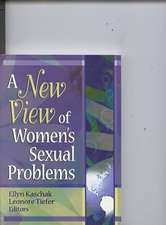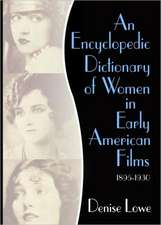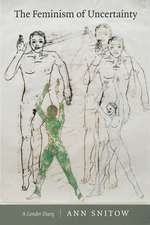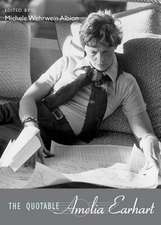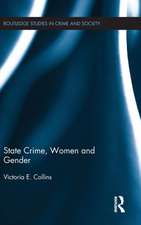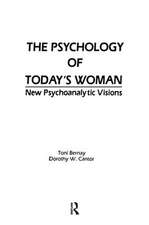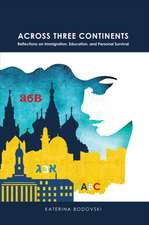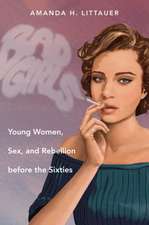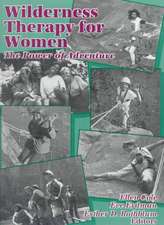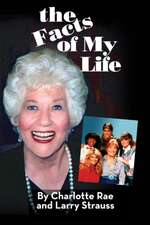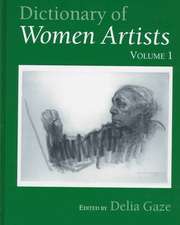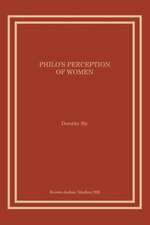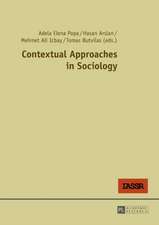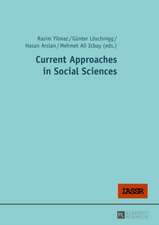Science, Technology, and Utopias: Women Artists and Cold War America: Science and the Arts since 1750
Autor Christine Filipponeen Limba Engleză Paperback – 23 mai 2019
| Toate formatele și edițiile | Preț | Express |
|---|---|---|
| Paperback (1) | 258.50 lei 6-8 săpt. | |
| Taylor & Francis – 23 mai 2019 | 258.50 lei 6-8 săpt. | |
| Hardback (1) | 879.65 lei 6-8 săpt. | |
| Taylor & Francis – 6 oct 2016 | 879.65 lei 6-8 săpt. |
Preț: 258.50 lei
Preț vechi: 310.65 lei
-17% Nou
Puncte Express: 388
Preț estimativ în valută:
49.46€ • 51.83$ • 40.89£
49.46€ • 51.83$ • 40.89£
Carte tipărită la comandă
Livrare economică 11-25 aprilie
Preluare comenzi: 021 569.72.76
Specificații
ISBN-13: 9780367199135
ISBN-10: 0367199130
Pagini: 204
Ilustrații: 64
Dimensiuni: 174 x 246 x 21 mm
Greutate: 0.38 kg
Ediția:1
Editura: Taylor & Francis
Colecția Routledge
Seria Science and the Arts since 1750
Locul publicării:Oxford, United Kingdom
ISBN-10: 0367199130
Pagini: 204
Ilustrații: 64
Dimensiuni: 174 x 246 x 21 mm
Greutate: 0.38 kg
Ediția:1
Editura: Taylor & Francis
Colecția Routledge
Seria Science and the Arts since 1750
Locul publicării:Oxford, United Kingdom
Public țintă
Postgraduate and UndergraduateCuprins
Introduction
1. Classic Utopias and Feminist Utopianism in Art, Science and Technology
2. Technologies of Dominance and Liberation: New Left Thought in the Work of Martha Rosler and Carolee Schneemann
3. A Means for Change: The Aesthetics of Open Systems in the Work of Alice Aycock, Agnes Denes and Martha Rosler
4. Unmasking the Myth of the Machine: Physics and Cosmology in the Works of Alice Aycock and Agnes Denes
Conclusion
Epilogue: The Whole Earth: Open Systems and Eco Art
1. Classic Utopias and Feminist Utopianism in Art, Science and Technology
2. Technologies of Dominance and Liberation: New Left Thought in the Work of Martha Rosler and Carolee Schneemann
3. A Means for Change: The Aesthetics of Open Systems in the Work of Alice Aycock, Agnes Denes and Martha Rosler
4. Unmasking the Myth of the Machine: Physics and Cosmology in the Works of Alice Aycock and Agnes Denes
Conclusion
Epilogue: The Whole Earth: Open Systems and Eco Art
Notă biografică
Christine Filippone is Associate Professor of Art History, Millersville University of Pennsylvania, USA.
Recenzii
Winner of SECAC 2017's Excellence in Scholarly Research and Publication prize!
"For this volume in a series titled Science and the Arts since 1750, Christine Filippone has carried out a prodigious amount of research that vividly re-creates some of the inspirational leaps between sources and creative output made by four exceptional artists, Alice Aycock (b. 1946), Carolee Schneemann (b. 1939), Agnes Denes (b. 1938), and Martha Rosler (b. 1943). ... This well-researched, ambitious book by Filippone will surely enlarge the public’s understanding of significant art and concepts with which they may not be familiar. It will also be of value to insiders who have followed such developments."
-- Woman's Art Journal
"This important book provides a fresh and alternative narrative to the increasingly well documented use of systems by artists and art historians from the 1960s onwards. With impressive research and perspicacious analysis Filippone gives an account of how women artists used the aesthetic and political potential of open systems to challenge social hierarchies. It makes a valuable and necessary contribution not only to art historical debates but also those in histories of technology and gender studies."
--Francis Halsall, Director, MA Programs, Art in the Contemporary World, National College of Art and Design, Dublin and author of Systems of Art
"Building on feminist philosophies and herstories, Filippone explores the vexed relationship that radical women in the art world of the ‘60s (Schneemann, Rosler) bore to the powerful phalanx of art and technology dominating the epoch. She marks the later 1970s turn from New Left criticality to an embrace of cybernetics and systems (Denes, Aycock) to show the complexity of a gendered Cold War that could not eradicate the potential for feminist techno-utopia. Filippone’s book offers an important corrective to existing histories of the period."
--Caroline A. Jones, Professor of Art History in the History, Theory, and Criticism Section of the Department of Architecture, Massachusetts Institute of Technology
"Women artists' historic role in sorting out and contributing to the field of science is one of art history's most under-recognized fields of research. Filippone's book not only opens a door onto this neglected topic, but goes the extra mile by demonstrating how women artists working across media (from drawing to performance art) adapted and transformed the scientific notion of open systems to produce dynamic art experiences. Heretofore, systems theory has largely been linked to conceptual art practices of the late sixties. Filippone carefully traces how four key feminist artists merged New Left tendencies with that era’s scientific theories to engender artworks that radically reconfigured societal norms."
--Sue Spaid, author of Ecovention: Current Art to Transform Ecologies
"For this volume in a series titled Science and the Arts since 1750, Christine Filippone has carried out a prodigious amount of research that vividly re-creates some of the inspirational leaps between sources and creative output made by four exceptional artists, Alice Aycock (b. 1946), Carolee Schneemann (b. 1939), Agnes Denes (b. 1938), and Martha Rosler (b. 1943). ... This well-researched, ambitious book by Filippone will surely enlarge the public’s understanding of significant art and concepts with which they may not be familiar. It will also be of value to insiders who have followed such developments."
-- Woman's Art Journal
"This important book provides a fresh and alternative narrative to the increasingly well documented use of systems by artists and art historians from the 1960s onwards. With impressive research and perspicacious analysis Filippone gives an account of how women artists used the aesthetic and political potential of open systems to challenge social hierarchies. It makes a valuable and necessary contribution not only to art historical debates but also those in histories of technology and gender studies."
--Francis Halsall, Director, MA Programs, Art in the Contemporary World, National College of Art and Design, Dublin and author of Systems of Art
"Building on feminist philosophies and herstories, Filippone explores the vexed relationship that radical women in the art world of the ‘60s (Schneemann, Rosler) bore to the powerful phalanx of art and technology dominating the epoch. She marks the later 1970s turn from New Left criticality to an embrace of cybernetics and systems (Denes, Aycock) to show the complexity of a gendered Cold War that could not eradicate the potential for feminist techno-utopia. Filippone’s book offers an important corrective to existing histories of the period."
--Caroline A. Jones, Professor of Art History in the History, Theory, and Criticism Section of the Department of Architecture, Massachusetts Institute of Technology
"Women artists' historic role in sorting out and contributing to the field of science is one of art history's most under-recognized fields of research. Filippone's book not only opens a door onto this neglected topic, but goes the extra mile by demonstrating how women artists working across media (from drawing to performance art) adapted and transformed the scientific notion of open systems to produce dynamic art experiences. Heretofore, systems theory has largely been linked to conceptual art practices of the late sixties. Filippone carefully traces how four key feminist artists merged New Left tendencies with that era’s scientific theories to engender artworks that radically reconfigured societal norms."
--Sue Spaid, author of Ecovention: Current Art to Transform Ecologies
Descriere
In this innovative book, Filippone offers an examination of the conceptual use of science and technology by women artists during and after the women’s movement. She argues that artists Aycock, Denes, Rosler and Schneemann used science and technology to critique Cold War American society as they saw it—conservative and constricting.










